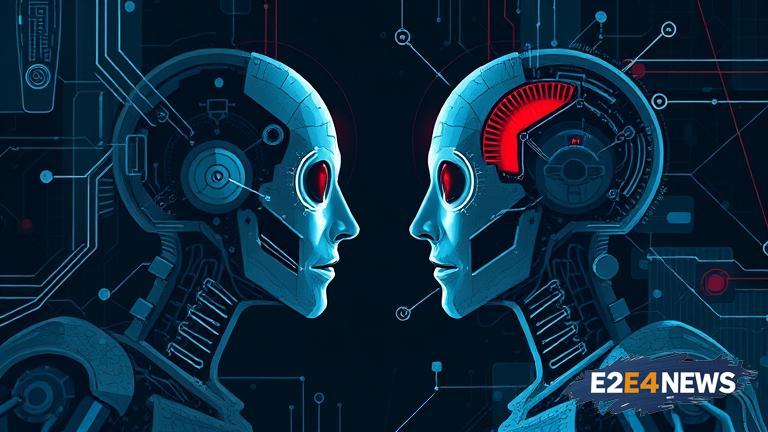The emergence of ChatGPT has revolutionized the way we interact with technology, providing instant answers to complex questions and streamlining tasks with unprecedented efficiency. However, this newfound reliance on AI has raised important questions about its effects on human intelligence. As we increasingly rely on ChatGPT to provide us with information, are we sacrificing our own cognitive abilities in the process? The answer, much like the technology itself, is complex and multifaceted. On one hand, ChatGPT has the potential to augment human intelligence, freeing us from mundane tasks and allowing us to focus on more creative and high-level thinking. On the other hand, the ease with which we can access information through ChatGPT may be eroding our ability to think critically and solve problems independently. Furthermore, the algorithm’s tendency to provide simplistic and superficial answers may be reinforcing a culture of intellectual laziness, where we settle for easy answers rather than delving deeper into complex issues. This phenomenon is not unique to ChatGPT, but rather a symptom of a broader societal trend towards instant gratification and decreased attention span. As we navigate this uncharted territory, it is essential to consider the long-term implications of our reliance on AI and to develop strategies for mitigating its negative effects. This may involve implementing education programs that emphasize critical thinking and media literacy, as well as encouraging individuals to engage in activities that promote cognitive development and creativity. Ultimately, the future of human intelligence will depend on our ability to strike a balance between the benefits of AI and the need to preserve our own cognitive abilities. By acknowledging the potential risks and taking proactive steps to address them, we can ensure that ChatGPT and other AI tools serve to enhance, rather than diminish, our collective intelligence. The consequences of inaction could be severe, with a potential decline in critical thinking skills, decreased innovation, and a loss of creativity. Moreover, the homogenization of thought and opinion facilitated by AI could have far-reaching implications for democracy and civic engagement. As we move forward, it is crucial to prioritize transparency and accountability in AI development, ensuring that these tools are designed with human well-being and agency in mind. The development of ChatGPT is a testament to human ingenuity and the boundless potential of technology, but it also serves as a reminder of our responsibility to use these tools wisely. By doing so, we can harness the power of AI to augment our intelligence, rather than undermine it. The rise of ChatGPT has sparked a necessary conversation about the role of technology in our lives and the importance of preserving our cognitive abilities in the face of rapid technological advancement. As we continue to navigate this complex and ever-evolving landscape, it is essential to remain vigilant and proactive, ensuring that the benefits of AI are equitably distributed and that its risks are mitigated. The future of human intelligence depends on it. In conclusion, the impact of ChatGPT on human intelligence is a multifaceted issue that requires careful consideration and nuanced discussion. While the tool has the potential to augment our abilities and streamline tasks, it also poses significant risks to our cognitive development and critical thinking skills. By prioritizing education, transparency, and accountability, we can ensure that ChatGPT and other AI tools serve to enhance, rather than diminish, our collective intelligence. The time to act is now, and the consequences of inaction could be severe. The development of ChatGPT is a call to action, a reminder of our responsibility to use technology wisely and to prioritize human well-being and agency in the face of rapid technological advancement.





